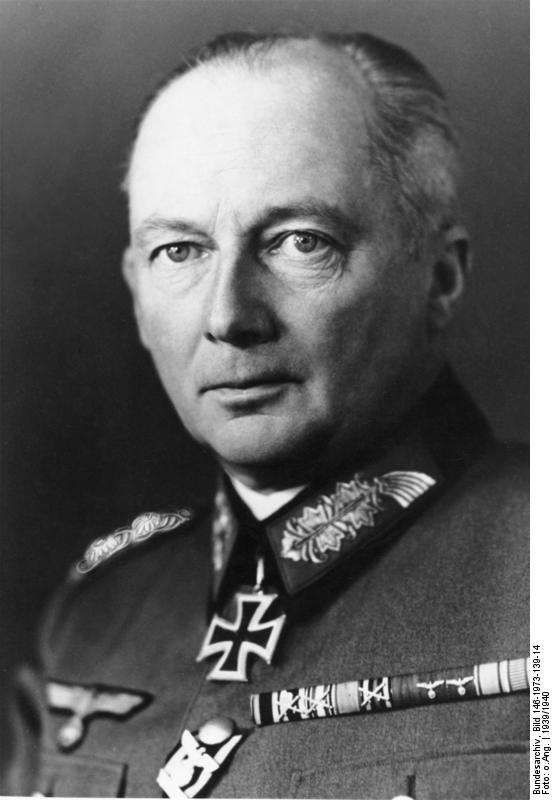Gunther Kluge
Field Marshal Günther Kluge - nicknamed ‘clever Hans’ - was an important German army officer in World War Two. Kluge was renowned as a brilliant staff officer. He never subscribed to Nazism but was loyal to his profession; the army swore an oath of loyalty to Hitler so Kluge initially obeyed the dictator’s orders. However later in the war he was implicated in plots against Hitler.
Born in 1882, Kluge served as an artillery officer in World War One. Kluge also learned to fly during the war. After the war, Kluge stayed in the Army; by October 1935 he was a lieutenant general commanding the VI Corps. In 1936 Kluge was promoted to general.
In 1937 he lost his job in a Nazi purge of the army. The army’s most senior general Werner von Fritsch was forced to resign in 1938 after Heinrich Himmler and Hermann Göering accused him of homosexuality.

However, Hitler needed competent military commanders as Germany edged closer to war. Kluge was brought back into the fold. In January 1939 he was given command of the Sixth Army Group.
Kluge commanded the German Fourth Army during the German invasions of Poland and Western Europe. His army was successful and Kluge was promoted by Hitler to field marshal in July 1940. During Operation Barbarossa in 1941, Kluge led the Fourth Army into the USSR, where he took part in the Battle for Moscow. In 1942, Kluge was made commander of Army Group Centre. He created defensive lines that mostly stood firm against Russian attacks until 1944.
In July 1944, Kluge replaced Field Marshal Rundstedt as Commander-in-Chief West. A month after the first D-Day landings, it was clear that Germany would not be able to push back the Allies to the Channel. Rundstedt had resigned: he had reached the end of his tether with Hitler’s obsessive interference in command decisions. Kluge’s command started ominously: Hitler decreed that German troops in the West could not retreat. Hitler considered tactical withdrawal as tantamount to a retreat. Kluge’s hands were tied and he had little freedom to formulate his own command plan. Kluge could not hinder the Allied advance, and five weeks into his appointment on 17 August, Hitler dismissed him. He was replaced by Field Marshal Walther Model.
Kluge was implicated in anti-Nazi plotting, including the July Bomb Plot to assassinate Hitler. After the failure of the plot, Kluge was asked to go to Berlin for a meeting with the Nazi Leader. Fearing that he would be punished as a plotter, Kluge committed suicide by taking poison on 17 August 1944.
See also: Nazi Leaders
MLA Citation/Reference
"Gunther Kluge". HistoryLearning.com. 2026. Web.
